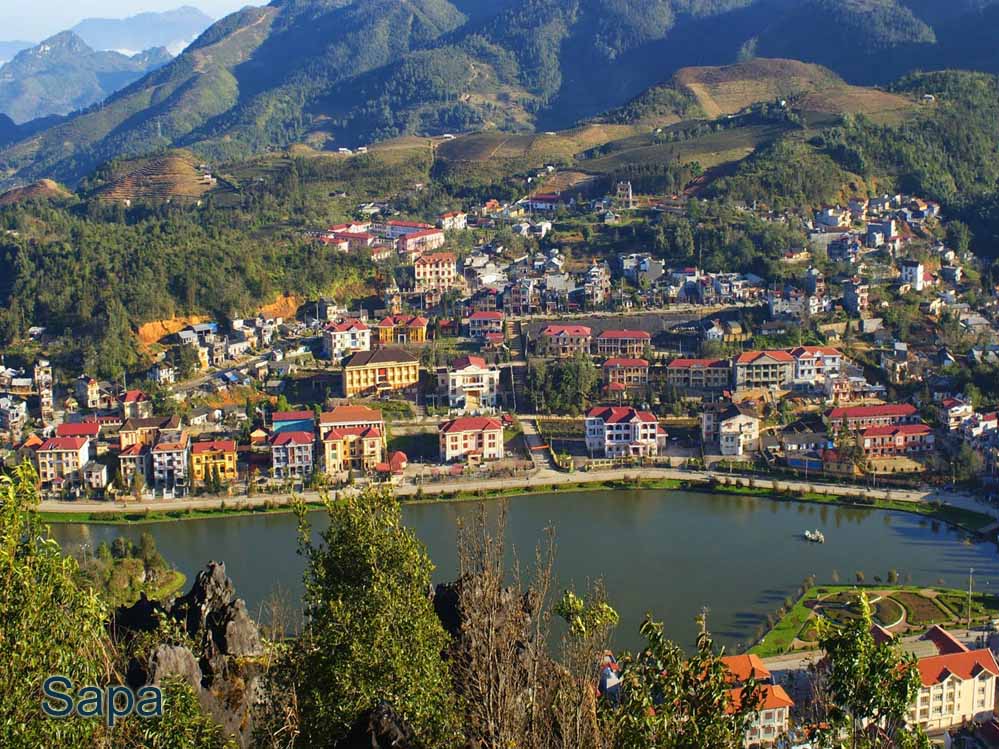Lao Cai launches master plan to elevate Sapa to international destination

In recent years, Lao Cai tourism has developed strongly,
gradually affirming its important position in the economic
structure. Resort, ecological, cultural and spiritual tourism
products are increasingly diverse, attracting tourists,
contributing to improving people's lives.
In 2025, the province is expected to welcome over 10 million
visitors, with revenue of more than VND 46,000 billion, 2.4
times higher than in 2020, contributing about 10% of the
province's GRDP.
The province's key tourist destinations such as Sa Pa, Bac Ha, Y
Ty, Mu Cang Chai, etc. have continuously become favorite
destinations for tourists.
Tourism development has made an important and direct
contribution to the provincial budget, and on the other hand,
has gradually created a driving force to promote other service
industries, contributing to promoting economic and labor
restructuring and creating sustainable livelihoods for people.
Currently, the whole province has about 35,000 workers working
in the tourism sector (over 14,500 direct workers, the rest are
indirect workers). In particular, a part of ethnic minorities
has participated more and more deeply in the tourism value
chain.
The whole province has about 740 homestays, attracting over
2,700 direct workers, with an average income of 50 - 70 million
VND/household/year, with some households earning from 150 - 200
million VND/year.
Mr. Giang A Sua in Mang Mu village, Mu Cang Chai commune said:
The H'Mong people have the custom of hanging corn for
preservation. I see that tourists are very interested in hanging
corn.
In 2017, my father and I built a small house to hang corn.
Later, I organized more experiential tours. Gradually, my house
became a space for tourists to visit and learn, many
photographers also came to the corn house to take many beautiful
photos, the family's income also gradually improved.
When it comes to Lao Cai tourism, Sa Pa National Tourist Area is
considered the driving force for tourism development in the
region and the country.
Over the past years, all levels have focused on building a
strategy to develop Sa Pa, aiming to turn this place into a
national and international tourism center, creating unique
products and brands, and at the same time spreading the cultural
values and people of Lao Cai - Northwest Vietnam to foreign
friends.
In the process of development, Sa Pa is also facing many
challenges.
Firstly, the "hot" tourism development has led to the appearance
of some tourist attractions lacking identity, fading the image
of Sa Pa.
Second, urban infrastructure and tourism infrastructure have not
kept up with the pace of development.
Third is the cultural influence from outside, threatening
traditional customs and practices - which have been the
"material" that has created the Sa Pa brand for over 120 years.
Sa Pa Ward People's Committee said: To overcome limitations and
elevate Sa Pa to become an international destination, orienting
tourism development towards green, sustainable and smart, the
Government has approved the general planning of Sa Pa National
Tourist Area.
On that basis, the locality is calling for investment in
large-scale projects such as eco-resorts, Sa Pa cultural parks,
etc. to supplement services and extend the length of stay of
tourists. At the same time, it continues to focus on preserving
natural landscapes, restoring customs and traditional culture,
so that tourists can fully experience the unique identity that
has made the Sa Pa brand over the past 120 years.
In the period 2025 - 2030, the province determines to build Lao
Cai into a tourist center of the country with unique,
high-quality tourism products.
The goal for the 2026 - 2030 term is to have 15 million tourists
coming to Lao Cai per year; tourism revenue will reach over 70
trillion VND.
To achieve the set goals, the entire tourism industry has put
forth long-term plans and strategies.
First of all, the Department of Culture, Sports and Tourism is
making efforts to advise the province to issue new tourism
development and support policies based on selectively inheriting
tourism development support policies issued by the two old
provinces. Continuing to propose support policies related to
community tourism products; promotion and advertising of tourism
products...
Currently, the industry is advising the province to issue the
Project on Tourism Development in Lao Cai Province for the
period 2026 - 2030; the Framework for Tourism Development
Strategy in Lao Cai Province to 2030, with a vision to 2050,
with many important contents.
The most important of which is the orientation of tourism
product development, with 3 investment directions to upgrade
existing main and auxiliary tourism products (eco-tourism,
resort; cultural, spiritual; community...); develop new tourism
products and develop specific tourism products, associated with
the province's outstanding tourism resources.
At the same time, strengthen the role of connection and domestic
and international cooperation in developing tourism products...
The Department of Culture, Sports and Tourism of Lao Cai
province affirmed: We are very confident and hopeful that with
the strategic vision, along with the attention, drastic, close,
focused direction of the Provincial Party Committee, People's
Council, People's Committee of Lao Cai province; the
coordination, support and assistance of all levels, sectors,
localities and international partners; the attention and
participation of the People and the business community, along
with the proactive and active consultation of the Department of
Culture, Sports and Tourism, Lao Cai tourism will achieve the
results as expected, making Lao Cai tourism truly become a
spearhead economic sector.
With the efforts of the entire industry, Lao Cai tourism is
increasingly affirming its position in the province's general
development strategy as well as on the regional tourism map.
Train Hanoi to Sapa
- Traveling bay train to Sapa offers a classic, scenic, and
nostalgic experience; allows you to sleep through the journey,
saving on a hotel night. However the train only goes to Lao Cai
Station (35 km from Sapa). You must then take an additional
1-hour bus or taxi transfer to Sapa town.




